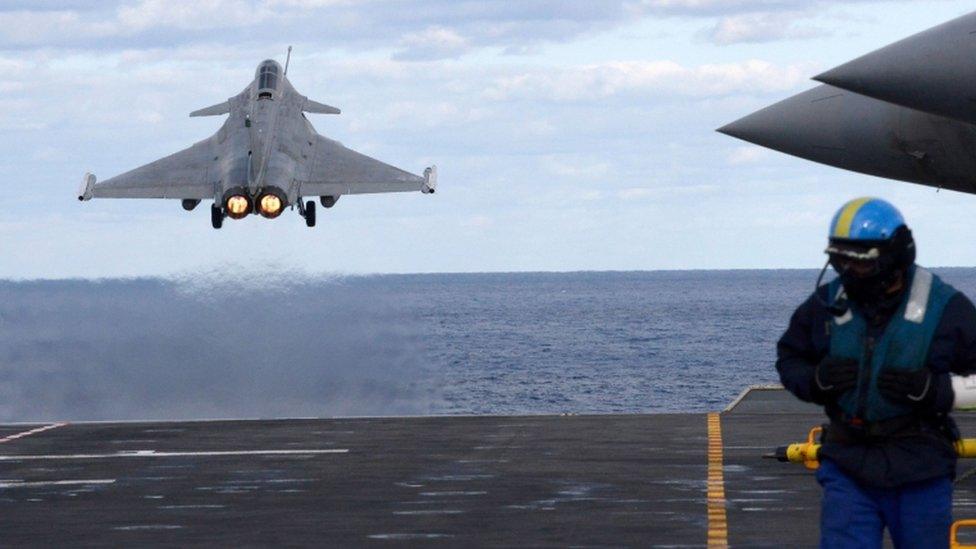Turkish ship at centre of row with Greece returns to coast
- Published
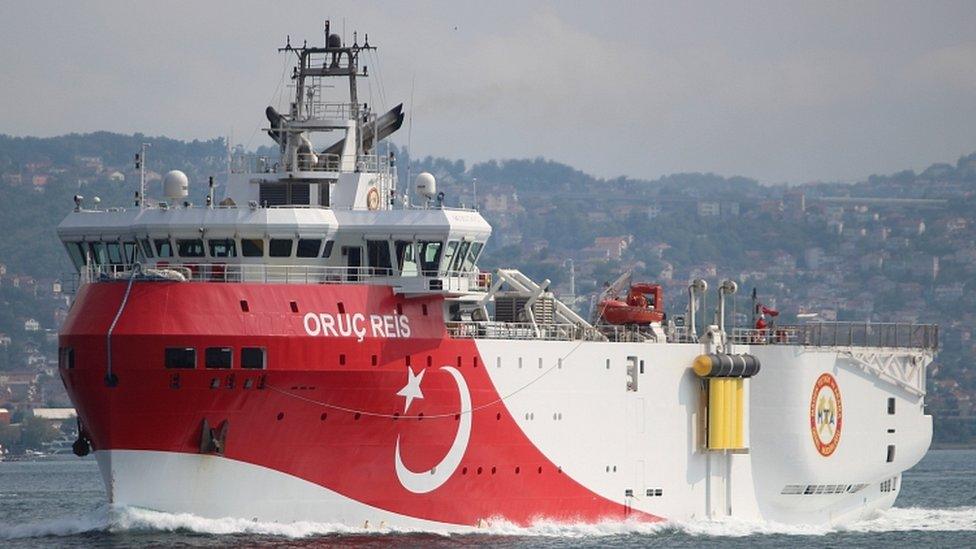
The Oruc Reis seismic research ship was surveying drilling prospects in disputed waters
A Turkish research ship at the centre of a row with Greece over oil and gas exploration in a disputed area of the Eastern Mediterranean has returned to waters near southern Turkey.
Greek PM Kyriakos Mitsotakis welcomed the move as a "positive first step".
Turkish Defence Minister Hulusi Akar said the move did not mean Turkey was "giving up on our rights there".
Tensions flared when Ankara sent the research ship to survey an area claimed by Greece, Turkey and Cyprus.
Ankara has since faced potential sanctions from the European Union, which supports Greece and Cyprus.
Ratcheting pressure up further on Saturday, Mr Mitsotakis announced Greece was "reinforcing its armed forces" and would buy 18 French Rafale fighter jets, four frigates and four navy helicopters. He said the Greek military would increase by troop numbers by 15,000 over the next five years.
Greece and Turkey are both Nato members, but have a history of border disputes and competing claims over maritime rights.
On 10 August, Turkey sent the seismic research ship Oruc Reis, accompanied by two auxiliary vessels, to search for potentially rich oil and gas deposits south of the Greek island of Kastellorizo. At the time, the Greek foreign ministry called the move a "new serious escalation" which "exposed" Turkey's "destabilising role".
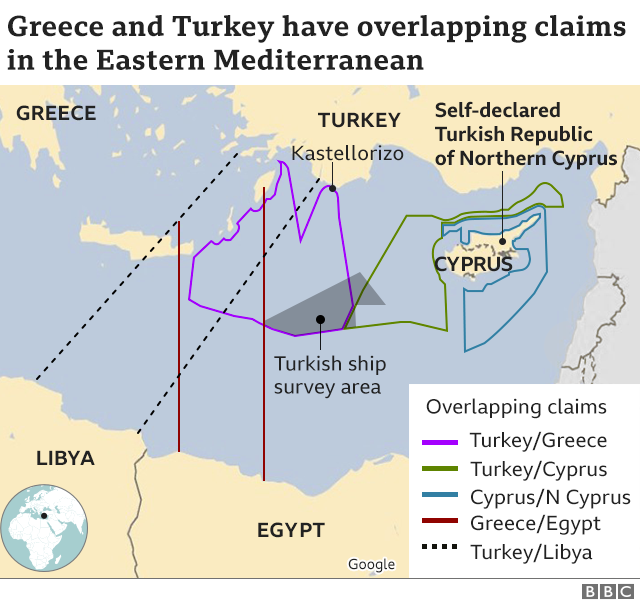
There are also tensions around Cyprus over rival exploration rights. The Republic of Cyprus and Greece do not accept any such rights for Turkish-controlled northern Cyprus in the region.
On Sunday, Mr Akar confirmed that the Oruc Reis had returned to Turkish waters. Ship-tracking websites showed it near the port of Antalya.
"There will be planned movements backwards and forwards," Mr Akar told state news agency Anadolu.
Last week, Turkey's navy said that the Oruc Reis would continue operations in the area until 12 September. Foreign Minister Mevlut Cavusoglu said exploratory work would continue but there were no plans so far for an extension to the ship's mission.
The Turkish pro-government newspaper, Yeni Safak, said the decision not to extend the ship's mission was "a step towards giving diplomacy a chance".
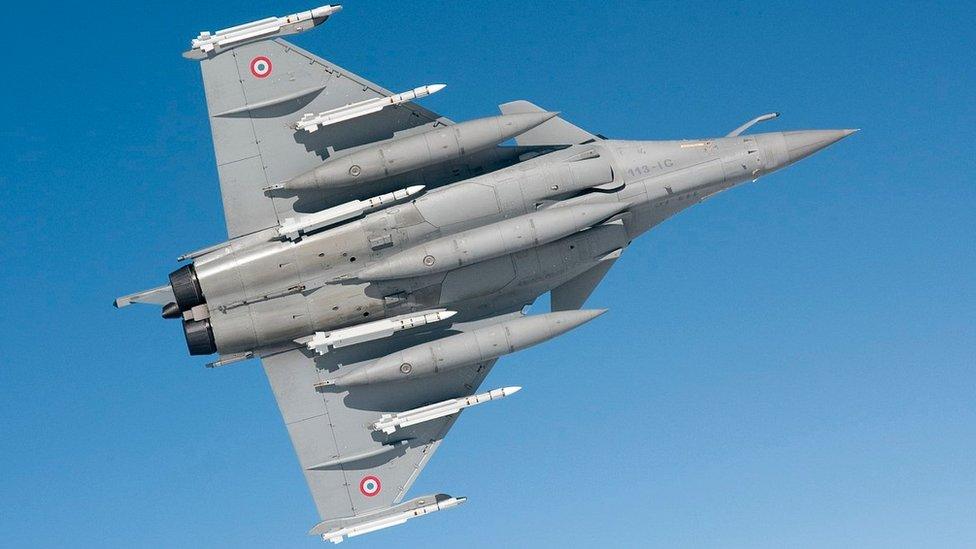
France has deployed Rafale fighters to the Eastern Mediterranean
"This is a positive first step. I hope there will be more of them," Greek PM Mitsotakis told a news conference in Thessaloniki on Sunday.
France - which is at odds with Turkey over the crisis in Libya - recently deployed two Rafale fighter jets and a naval frigate in the Eastern Mediterranean because of the tensions between Greece and Turkey.
President Emmanuel Macron said the French military would monitor the situation. He also urged Turkey to halt oil and gas exploration in disputed waters.
- Published10 August 2020
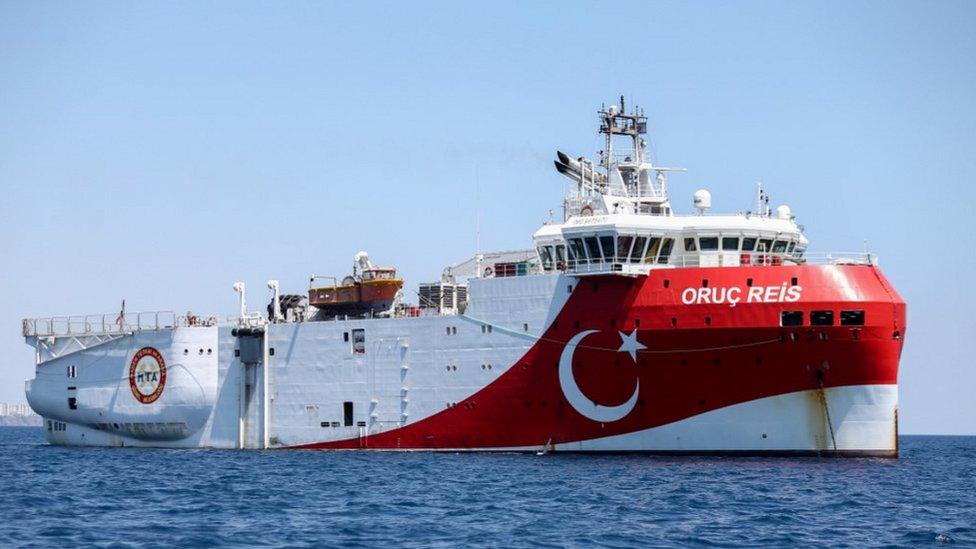
- Published25 August 2020
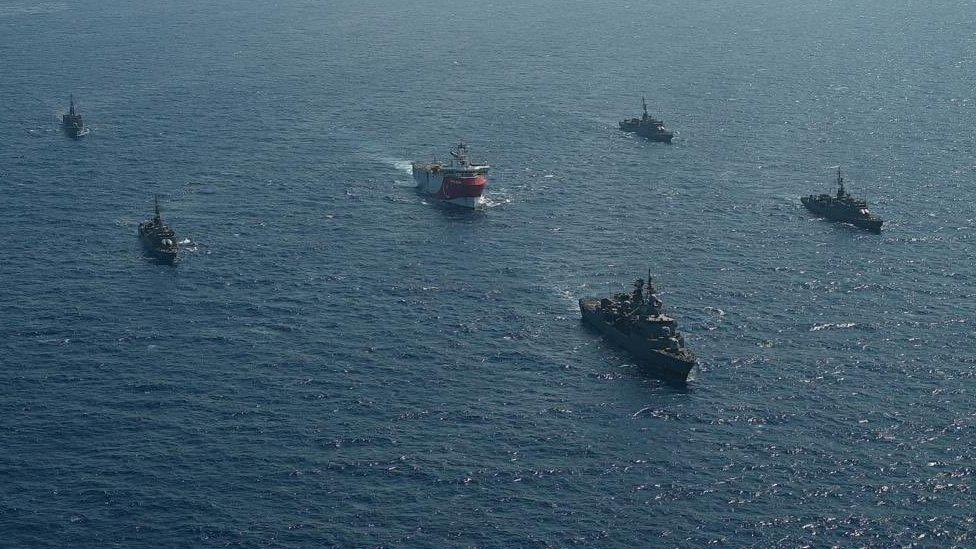
- Published2 July 2020
